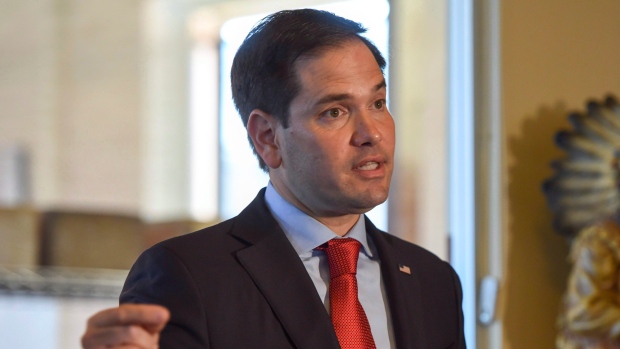Dec 15, 2017
Republicans race to finish U.S. tax bill and win over reluctant senators
, Reuters

WASHINGTON - Republican negotiators in the U.S. Congress worked furiously on Friday to put the finishing touches on a sweeping tax overhaul and expanded a child tax credit in an effort to win the support of two wavering senators.
Republican Representative Kristi Noem said the refundable portion of an expanded child tax credit in the tax bill under negotiation has risen to US$1,400 from US$1,000, an apparent bid to win support from Republican Senators Marco Rubio and Mike Lee.
"I believe we're in a good spot and should be able to earn his support," Noem said, referring to Rubio. She is a member of the House-Senate conference committee that is working on a final tax bill.
Aides to both Rubio and Lee said they had not yet seen the text of the latest child tax credit provision.
"Until we see if the per centage of the refundable credit is significantly higher, then our position remains the same," said Rubio spokeswoman Olivia Perez-Cubas.
Before the expanded credit was circulated, Rubio had noted the legislation would double the child tax credit to US$2,000 but only about half of that of figure would be refundable to millions of working-class families.
He said on Twitter he could only support the bill if the per centage of the child tax credit available to working-class parents was increased to a figure "meaningfully higher" than 55 per cent. Making the refundable portion US$1,400 as Noem announced would be 70 per cent.
Republican leaders hoped to unveil details of the legislation on Friday and queue it up for votes by the full Senate and House next week.
President Donald Trump touted a tax cut constantly during his campaign and wants an approved bill on his desk for his signature before Christmas. It would be Trump's first major legislative victory since taking office in January.
With all 46 Democrats and two independents in opposition to the measure, Republicans can only afford to lose two of their 52 senators and still win passage. Republican Senator Bob Corker opposed an earlier version of the legislation, largely because of the bill's impact on federal deficits.
HURDLES REMAIN
As the tax package has evolved, it has tilted increasingly toward benefiting businesses and the wealthy, a trend some lawmakers have said is a growing concern. Provisions for offsetting the revenue costs of last-minute changes also were a concern for some lawmakers.
After resisting demands for weeks to cut the top income tax rate for the richest taxpayers, the bill's authors did agree in recent days to lower it to 37 per cent from 39.6 per cent.
The Senate approved a wide-ranging version of the tax bill on Dec. 2 by a vote of 51-49, with Corker the only Republican to vote no. Earlier, the House of Representatives had approved its own tax legislation.
Independent and nonpartisan tax analysts have estimated that the bill will expand the US$20 trillion national debt by at least US$1 trillion in the next 10 years.
Moderate Republican Senator Susan Collins also has been non-committal on the bill, in part out of concern about its provision to repeal an Obamacare federal fine imposed on Americans who do not buy health insurance.
The Senate vote outlook has been further muddled by Senator John McCain's admission to the hospital for treatment for side effects of cancer therapy. His office said he "looks forward to returning to work as soon as possible."
Vice President Mike Pence has delayed a planned trip to the Middle East in case his vote is needed to break a tie on the final tax bill.
